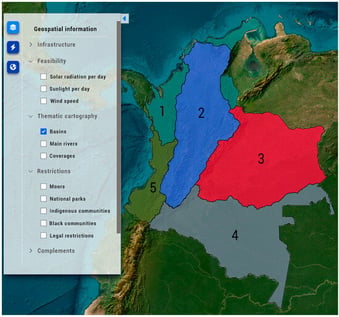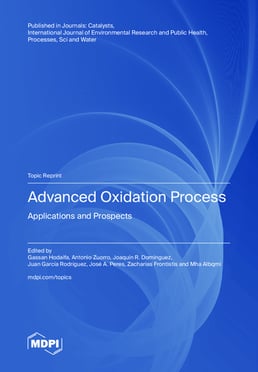- Article
MODERHydrogen-H2: A GIS-Based Framework for Integrating Green Hydrogen into Colombia’s Energy Transition
- Javier Dominguez,
- Ricardo Quijano and
- Juan Quijano-Baron
The transition to green hydrogen is critical for achieving sustainable energy systems and climate goals. This study presents MODERHydrogen-H2, a comprehensive framework for assessing solar- and wind-based green hydrogen production, fossil fuel substitution, and greenhouse gas (GHG) reduction. The method integrates Geographic Information Systems (GIS) to optimize renewable energy resource allocation while adhering to sustainability criteria. Applied to four solar sites (2000 MW) in Colombia’s Magdalena–Cauca Basin and three wind projects (1700 MW) in the Caribbean Basin, the model estimates an annual production of 211,074 tons of green hydrogen by 2030. This output could displace 37,221 terajoules of fossil fuels, contributing 2.5% to the national energy matrix and reducing CO2 emissions by 10.09 million tons. MODERHydrogen-H2 demonstrates scalability and adaptability, offering a decision-support tool for global energy transition strategies. Its implementation supports affordable, reliable, and low-carbon energy systems, aligning with Sustainable Development Goals (SDGs) targets. The model offers a single platform from which to simulate renewable energy potential in a sustainable manner within a given geographical area, develop scenarios for modifying the energy matrix of a country or region, simulate rational and efficient water supply and demand for energy uses, including aspects of climate change, calculate green hydrogen production in a sustainable manner, and finally calculate greenhouse gas emissions.
6 February 2026





